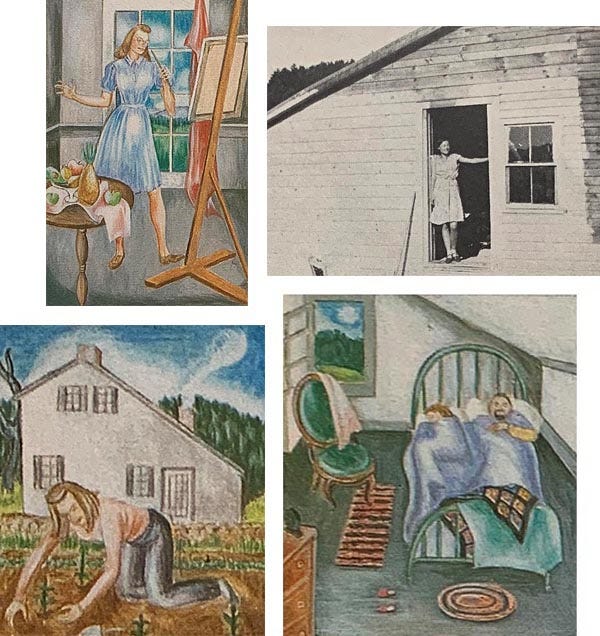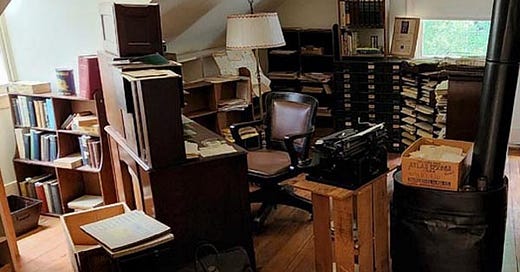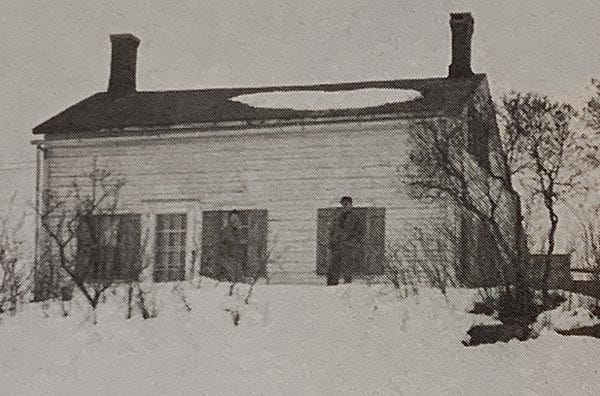Recently on NPR I heard a humanitarian aid worker say that every person in the world has the right to life, food and dignity. It lingers with me that he didn’t mention shelter.
Now I realize that in the region where he’s stationed, shelter is so unattainable that for him the absence of it was unspeakable.
What home means in America has been on my mind ever since Election Day, November 5th. Right now, the private and the public are so mixed up that I think of my home not as this house, or even North Carolina, but as America itself.
In my lifetime it’s true that many Americans never had access to the vote and a fair justice system, but the idea was always there. Then by November 6th, 2024, a new Department of Efficiency had declared that the rule of law in America would become the rule of revenge. I don’t accept this as inevitable, but there it was.
It’s odd that the moment your home, or homeland, becomes vulnerable, you try to remember every detail. Maybe this is so that you can rebuild it.
My idea of a private home comes from my parents’ generation. I first realized this while visiting the Carl Sandburg house in Hendersonville, North Carolina. I felt right at home with the old shaded lamp, stacks of clippings, a real typewriter, and books all around.
My own magazine clippings today include illustrated articles about women artists. For example, one features Dorothy Dehner. She painted a series of pictures about her married life at home with sculptor David Smith. No camera lens comes between the artist and the scenes she depicts.
In 1929, for $1,000 down, the couple bought a ramshackle Revolutionary-War-era saltbox house on 85 acres of New York’s Adirondack mountains.
Dorothy later told an interviewer how she felt one midsummer day as she returned home from a visit to her aunt in dry, brown California.
Bolton Landing was almost a shocking surprise, green, green, all shades of green, all textures. This was my home, David was there, and our meadows and pastures and woods.
We had a good life together. Our primitive way enriched us. We had books and music and freedom to work. True, we had no running water, electricity or central heat. We didn’t care!
Dorothy said about her painting, above,
October Scene is typical of our activity at the season, getting ready for the Big Winter. David and his art dealer, Marian Willard, are planting trees. I am planting tulip bulbs, Leo Campbell is pumping oil for our new Sears, Roebuck space heater, and Peanut Monroe is trucking a supply of logs for the kitchen stove.

She continued,
Although I’m shown painting a still life [above], there were hours of household chores. Without running water, we bathed and washed at the kitchen sink, bringing in buckets of water from the well. … The second cup of coffee was accompanied by the news from the New York paper P. M.
‘Oh, Dorothy,’ Aunt Flo once remarked after a visit, ‘you have all the luxuries and none of the necessities.’
In the article I have, the interviewer says that Dehner’s paintings show an idyllic life. What they do not show, he says, is “the tempestuous teeterboard of living with David Smith, a hot-tempered, creative genius.”
But these paintings are the record Dorothy created and the one I kept, because it is one happy vision of home, just one of an infinite variety. It is one to begin with.
I have no words for the world today.







"I like this place, and willingly could waste my time in it."
William Shakespeare--As You Like It